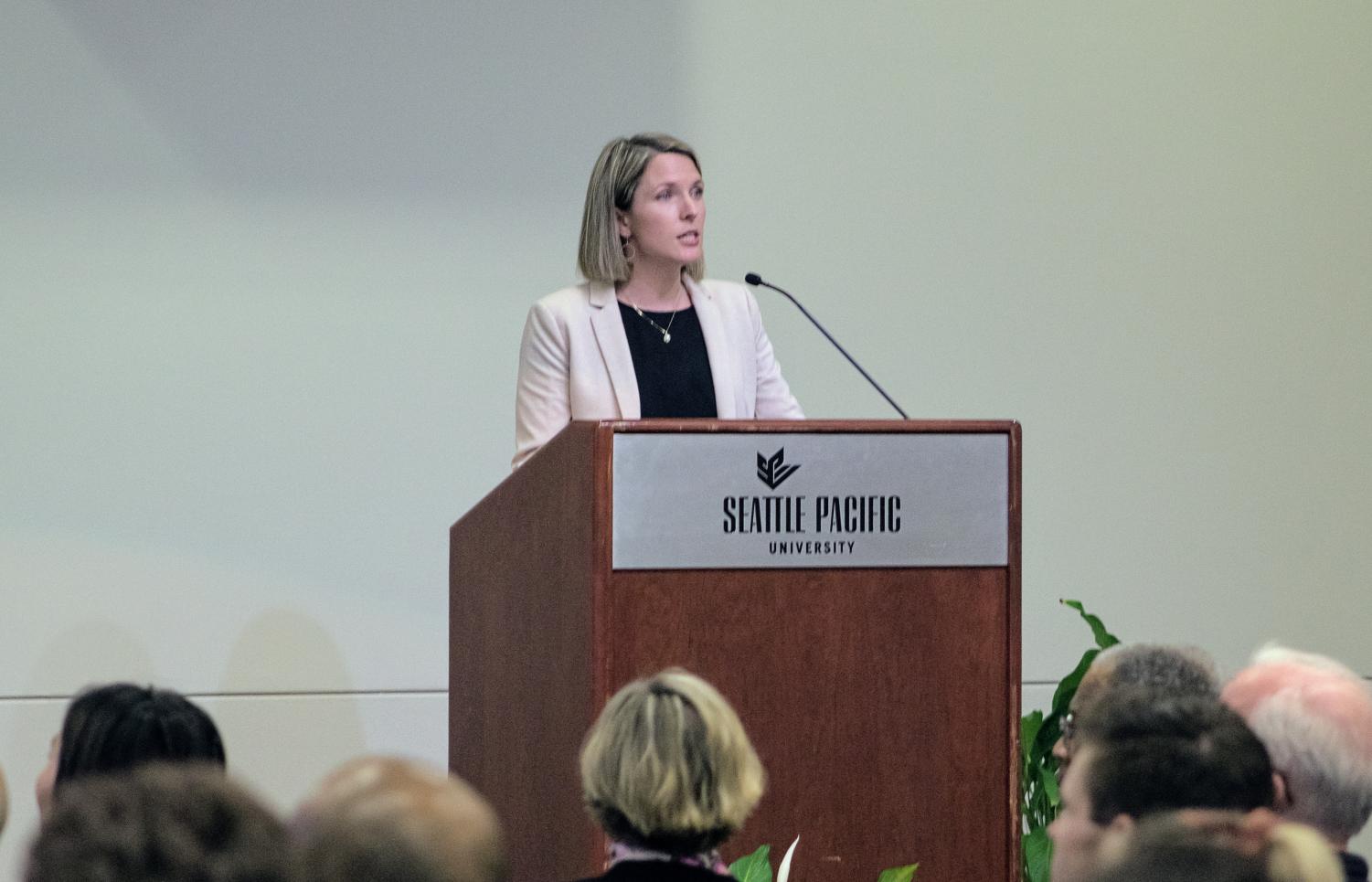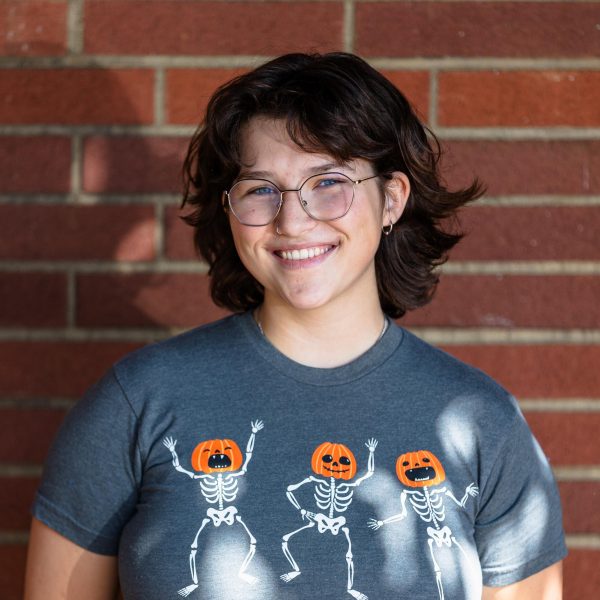Walter lectures on Iraqi stories, perspectives
2023’s Weter award lecture goes to Dr. Alissa Walter, focuses on history of Iraq, US
April 12, 2023

On April 11 in Upper Gwinn, Dr. Walter was introduced as the speaker for Seattle Pacific University’s annual Winnifred E. Weter Faculty Award Lecture for Meritorious Scholarship. Her lecture, “20 Years After the Iraq War: Stories and Perspectives” documented the history of Iraq through the experiences of its citizens.
After taking the stage, Walter emphasized her Christian identity and calling to love and history through sharing others’ stories. She began her lecture by making clear that Iraq is more than a war zone and its people more than war-torn. Its history is intricate and complex, existing beyond the United States. To demonstrate Iraq’s realistic history, Walter began in 1950 with Iraq’s renaissance.
“They were the envy of many for their high-quality schools and health care systems,” Walter said. “Iraqi Poets, artists, sculptors, musicians, intellectuals have always been the soul and center of Iraqi culture, and new art exhibits were showcased in these decades in particular.”
During this period of thriving, largely funded by Iraq’s immense oil reserve, Sadam Hussein’s Ba’ath party took power. Shortly after becoming Iraq’s official president, Hussein ended Iraq’s golden age in 1980 by plunging into war with Iran and ordering a genocide of Iraq’s Kurdish population.
After the Iran-Iraq War came to an end, there was a brief period of hope and healing for the Iraqi people, still under a dictatorship. However, due to economic concerns, Hussein began another war in 1990, focused this time on Iraq’s oil rich neighbor, Kuwait.
“This decision to invade Kuwait was the decision that set the U.S. and Iraq on a collision course for the next 20 years,” Walter said.
The U.S. bombed Iraq’s military positions in Kuwait and capital city of Baghdad. After this brief war and over the next decade, the UN enforced intense sanctions on Iraq. Walter cited diary and memoir entries of Iraqi sculptors, journalists and other civilians to document the realities of survival and daily life in Iraq during this time. Baghdad’s crippled infrastructure, citizens’ increased dependency on Hussein’s regime for basic survival and huge Iraqi displacement were all explored in depth.
“This was the situation Iraqis were living through on the eve of the 2003 war: devastated economically because of sanctions, living in paranoia about informants and the secret police, failed by their schools and their health care systems, grieving those lost in war or disappeared by the regime,” Walter said.
In 2003, 20 years ago, the United States declared war on Iraq and the Iraq War began. Walter, through sharing more Iraqi stories, focused on the realities in modern Iraq that found their root in the Iraq War: sectarian government, bribery, corruption, murder and other harsh realities abounded.
“These are the stories you need to hear directly from Iraqis themselves, from those who lived through it,” Walter said.
Brock Quant, a first year history major and student of Dr. Walter, appreciates her value for experiences.
“We talk about the administration and the policy, but these things we don’t talk about, the people that are affected, are very important,” Quant said.
As Walter showed, stories and perspectives of Iraqi people relate history powerfully – from the flourishing of Iraq from 1950 to 1980, to Sadam Hussein’s wars and genocides, to economic sanctions that crippled the entire country, to the 2003 occupation for which this lecture commemorated an anniversary.
Erin Hallquist, a first year linguistics major, thinks Walter is beyond deserving of the Weter Faculty Award.
“I’ve heard singing praises,” Hallquist said. “Anytime I see her, she’s so lovely. Even though I haven’t taken a class from her, coming and supporting felt like the right thing to do.”
Walter ended her lecture by relating the current state of tentative stability in Iraq – complex in both its systems of government, corruption and violence and its roots in the Iraq War.
“Today, there is a new sense of calm and security in Iraq,” Walter said. “Iraqis I interviewed tell me that they’re glad they have freedom of expression in Iraq now. Failing infrastructure can ultimately be fixed, but freedom from authoritarian rule is rare in the Middle East.”
In 2019, thousands of young people protested in the streets for change in Iraq and a turning away from sectarian government.
“The chants of the protesters were: ‘Nureed Watan’ – ‘We want a country,’” Walter said. “The kinds of challenges that Iraqis have faced in recent decades have been existential and yet, Iraqis are still here, resilient.”
Walter’s full lecture can be viewed here .



























































































